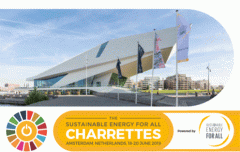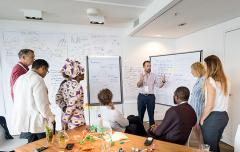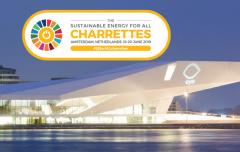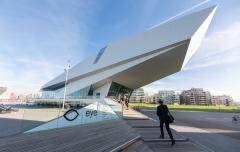Ideas for SDG7 progress: Sharing outcomes from the 2019 SEforALL Charrettes
A detailed report of the 2019 Sustainable Energy for All (SEforALL) Charrettes is now available to stakeholders in the sustainable energy movement.
The Charrettes were held in Amsterdam, Netherlands from 18-20 June and brought together nearly 200 participants to challenge the status quo and generate new ideas and solutions to achieve Sustainable Development Goal 7 (SDG7).
SEforALL organized the Charrettes because there is a clear lack of progress on SDG7, as evidenced by Tracking SDG7: The Energy Progress Report 2019. Notably, 840 million people around the world still do not have access to electricity and 2.9 billion lack clean cooking solutions.
The 2019 SEforALL Charrettes Report summarizes the sessions and their outputs. Participants of the Charrettes generated a total of 12 disruptive solutions for specific issues inhibiting the speed and scale needed to achieve access to electricity and to clean cooking.
The new report highlights these solutions, including the initial plans for their implementation and provides a roadmap to energy stakeholders of how they can support their implementation.
The four charrettes topics, their guiding questions and the solutions the participants generated are provided below.




